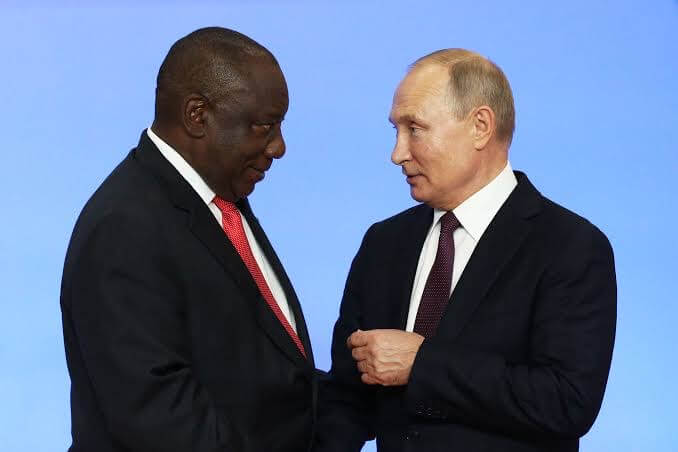South African President Cyril Ramaphosa swiftly backtracked on his Tuesday announcement of South Africa’s withdrawal from the International Criminal Court (ICC), only months before hosting Russian President Vladimir Putin, who the ICC wants arrested for alleged war crimes.
The Ramaphosa’s presidential office published a statement late Tuesday attempting to explain the president’s earlier comments, stating, “The Presidency wishes to clarify that South Africa remains a signatory to the Rome Statute,”, claiming that the president made the remarks “erroneously.”
Overview
During a joint news conference with Finnish President Sauli Niinistö in Johannesburg, Ramaphosa reportedly stated that the African National Congress (ANC), the country’s ruling party, “has taken that decision that it is prudent that South Africa should pull out of the ICC.”
Ramaphosa stated that the decision, which came after a weekend ANC meeting, was made “largely” because of the Court’s perceived unjust treatment towards certain nations. He added, “We would like this unfair treatment to be properly discussed, but in the meantime, the governing party has decided once again that there should be a pull-out.”
South Africa’s governing ANC contradicted a statement by President Ramaphosa that the party had decided the country should withdraw from the International Criminal Court https://t.co/BoQ6UUcVYw
— Bloomberg (@business) April 25, 2023
The uncertainty around South Africa being a State Party to the Rome Statute comes amid growing speculation over Putin’s attendance at the upcoming BRICS annual summit in August.
The ICC had issued an arrest order for Putin in March, accusing him of war crimes including forcibly deporting children from Ukrainian territory that was under Russian occupation.
Accordingly, under ICC’s Rome Statute, if Putin travels to any ICC member country, that country is obligated to arrest the Russian president.
Russia’s Impending Decision
Kremlin spokesperson Dmitry Peskov stated this week that Russia would actively participate in the BRICS summit in Cape Town this August, and “appropriate decisions will be made closer to the time” on Putin’s attendance in person.
According to reports from the local Russian news portal The Moscow Times, prominent officials in the Russian government are panicking over the arrest order and believe it is an attempt to depose Vladimir Putin as Russian president.
For now, Putin stands no immediate fear of arrest in Russia, where he has ultimate power. However, things might become complicated if Putin leaves the country or travels outside.
Since Putin’s potential presence at the summit is uncertain, Ramaphosa had said the situation “is still under consideration and discussion” in light of the ICC warrant.
Even if SA pulled out of ICC, it's still obligated to arrest Putin - SAIIA https://t.co/WVJVFm0M3r pic.twitter.com/LcHf8LO4rq
— Eyewitness News (@ewnupdates) April 26, 2023
Allegations Against Putin
The Court said that Putin has been complicit in war crimes in Ukraine since the conflict began in February 2022, including unlawfully deporting and transferring civilians, including children, from Ukraine to the Russian Federation. The warrant indicated that the court believes Putin holds “individual criminal responsibility.”
The Russian president is accused of directly committing the offences or neglecting to exert his authority over civilian and military officers who coordinated the violations.
War Crimes in Ukraine
In Ukraine, Russia is suspected of violating a number of international human rights and humanitarian standards, notably by attacking critical infrastructure, child deportation, torture, rape, wrongful detention, and the death of Ukrainians. Russian forces concentrated on “attacks with explosive weapons in populated areas.”
Additionally, reported incidents of sexual crimes by the Russian military personnel against men, women, and girls “aged from 4 to 82” were more prominent in the areas annexed by the Russian troops.

